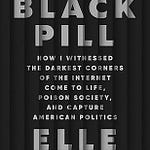This week on our untitled, occasional podcast, Max Read of Read Max and I hosted our first guest: the mighty Quinn Slobodian, professor of international history at Boston University.
Quinn is the author of Globalists: The End of Empire and the Birth of Neoliberalism, Crack-Up Capitalism: Market Radicals and the Dream of a World Without Democracy, and the forthcoming Hayek's Bastards: Race, Gold, IQ, and the Capitalism of the Far Right. He also wrote a recent cover story for The New Statesman entitled “Elon Musk’s hostile takeover: Inside the mind of the billionaire at the heart of American power.”
So, it shouldn’t be too difficult to figure out why Max and I wanted to talk to Quinn, whose work I’ve followed and admired for several years now. We had a far-ranging and I think quite enlightening conversation about capitalism, speculation, technology, and the general state of things. Hope you enjoy!
During the show we also mentioned:
Murray Rothbard’s 1992 “Right Wing Populism” essay, an important jumping-off point for both Quinn’s and my work
My 2017 Baffler piece on Murray Rothbard












